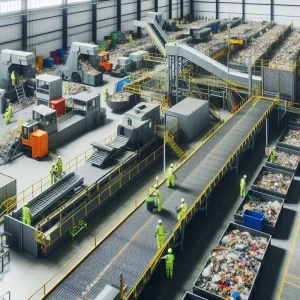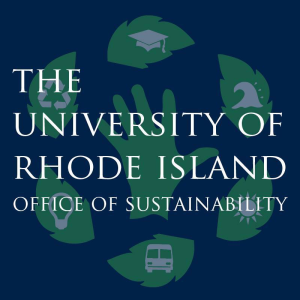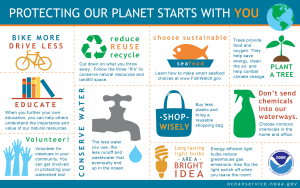
Rather than a waste management system, recycling and reuse management should be put in place as a resource. Solid waste collection systems were thought of as a whole in the 1970s and 1980s when recycling programmes were first introduced. Waste collection programmes were predicted to cover their expenses through user charges or local taxes, like recycling programmes. Even when increased recycling led to lower total system costs, especially in areas with high disposal costs, this frequently resulted in the inclusion of recycling programme costs and revenues in the as a whole waste collection system. Currently, the “best practise” approach is to perceive recyclables as commodity markets that are managed as resources under a management system that is consistent with frameworks such as “sustainable materials management” and “zero waste.”
Stop Thinking About Waste Management And Start Considering Long-Term Material Management
In a procedures associated management strategy, a municipality helps make deliberate decisions about flow of materials, and a planning is part of that strategy. After the materials have been consumed, the plan’s elements become tactics that are specific to dealing with those materials. These are the components:
- Prevention
- Generation
- Recovery
- Reuse
- Source Separation (recyclables and organics)
- Transfer
- Collection
- Treatment
- Disposal
- Recycling
When It Comes To Funding And Contracting, It Can Also Be Defined By The Methods Used
Efficient resources management plans incorporate the following key programme areas:
- Recycling in a single stream
- Recycling in the Workplace
- Recovery of Organic & Food Waste
- Multi-Family Recyclability
An Extensive Trip and a Special Occasion ‘How to Recycle’ and ‘Recycling Awareness’ Planning is a continuous process, not a one-time event.
With a plan, you can identify your beginning (where are you now), goal (where do you want to have been in the future), path (what are you going to do to get there), and measure your progress (is this what we’re measuring so that we can know if you have made any progress). Evaluation of a plan’s success in achieving its goals is a critical input into subsequent planning cycles. Sustainable improvements in service coverage & standards for managing recovered resources should be the primary goal. Local waste management practises have the potential to be improved through strategic planning because it can adapt to the ever-changing waste & recovered material markets.

Take A Team Approach To Problem Solving
Planning for resource management has been made easier with the help of successful public-private partnerships for delivery of services (PPPSD). Sustainable, self-supporting partnerships among businesses and local governments are a major goal of the programme, which focuses on helping new business-municipal collaborations in solid waste management and recycling get started.
Enhanced co-operation between public, private, and citizen stakeholders is the primary goal of the programme, which aims at reducing waste in poor communities, improving recycling and solid waste management, and enhancing the livelihoods of people and businesses in both rural communities as well as cities.
Avoid The Landfill’s Scenic Route
Many resources management plans & recycling programmes are now driven by the goal of diverting waste from landfills, with some states and cities sometimes operating under legislative mandates. Manufacturers who landfill otherwise unusable materials that are labelled as “diverted” from local landfills have made a longer journey to a Landfill than those who don’t. The actual diversion rate can only be determined by verifying what became of ‘ return from municipal recycling programmes. Materials that could have been used in making recyclable products should be known by recycling programmes.
Local governments have to provide recycling services that support the entire cycle, not just collection, if they want to make sure a maximum support overall recycling system. For hauler & recovery service providers, the requirements for collection, processing, and marketing must be specified in the requests for service and in local ordinances. Stakeholder input & feedback are essential during the preparation and design of resource management programmes, and this includes the manufacturing finished markets for retrieved resources.
The ultimate goal of recycling programmes should be to maximise the recyclability of all their materials.




